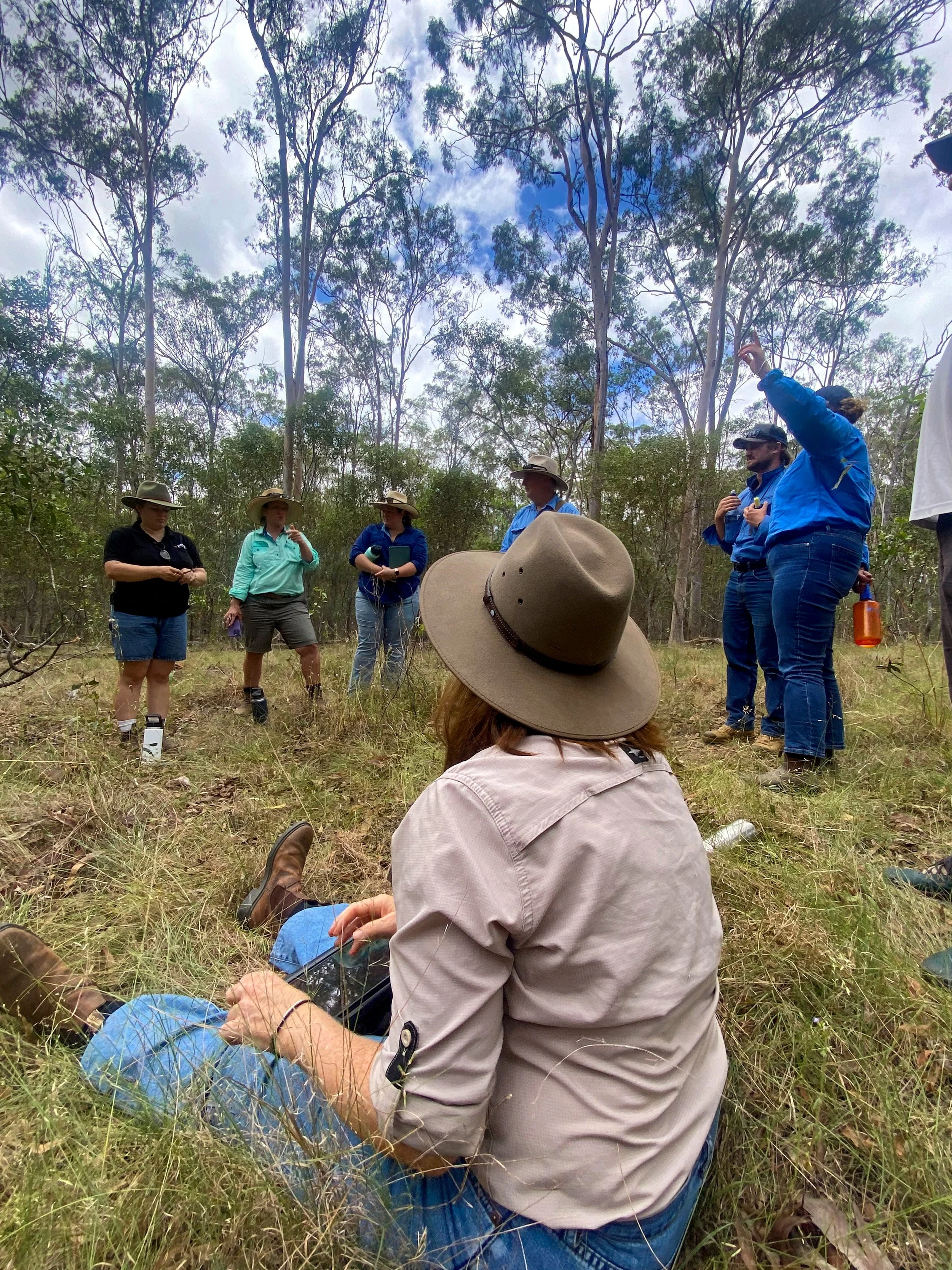BMRG Staff Trained in Land Condition Assessment Tool (LCAT)
Burnett Mary Regional Group (BMRG) staff recently completed an intensive two-day training on the Land Condition Assessment Tool (LCAT), led by its developer, Rob Hassett. The session combined theory with hands-on fieldwork, equipping 11 BMRG staff members and representatives from Growcom, the Queensland Department of Primary Industries (QDPI – formally QDAF), and Queensland’s Department of the Environment, Tourism, Science, and Innovation (DETSI), with valuable skills in land condition assessment.
LCAT, developed by Queensland’s Department of Agriculture and Fisheries (now QDPI), provides a standardised method for evaluating land health. It helps land managers assess soil quality, pasture composition, and vegetation cover—key factors in sustainable land use. By categorising land condition from A (healthy) to D (degraded), the tool supports informed decision-making and long-term productivity.
The training was led by Rob Hassett, a Principal Agribusiness Development Officer with extensive experience in land and vegetation management. Over the years, Rob has played a key role in developing and refining innovative data collection methods that inform government policies and land management strategies. His expertise in field data collection has contributed to major sustainability initiatives across Queensland, particularly in grazing and agricultural landscapes. Having worked closely with landholders, researchers, and policymakers, Rob brings a wealth of practical and scientific knowledge to the field, making him an invaluable mentor for those learning to apply LCAT effectively.
A highlight of the training was discussing the Grazing land management (GLM) ‘rolling ball’ model. The model demonstrates how proactive planning, and sound management can withstand shorter-term management or climate impacts and retain A (good) and B (fair) condition. Poor management and longer-term impacts can result in more rapid decline to C (poor) or D (degraded) condition. While early-stage decline can be more readily reversed, returning C condition to B or A is significantly more challenging, and returning D to C may require significant monetary and/or mechanical inputs. This concept reinforced the importance of proactive land management.
With this training, BMRG staff are better equipped to support landholders across the Burnett Mary region, promoting sustainable and productive land use for future generations.



